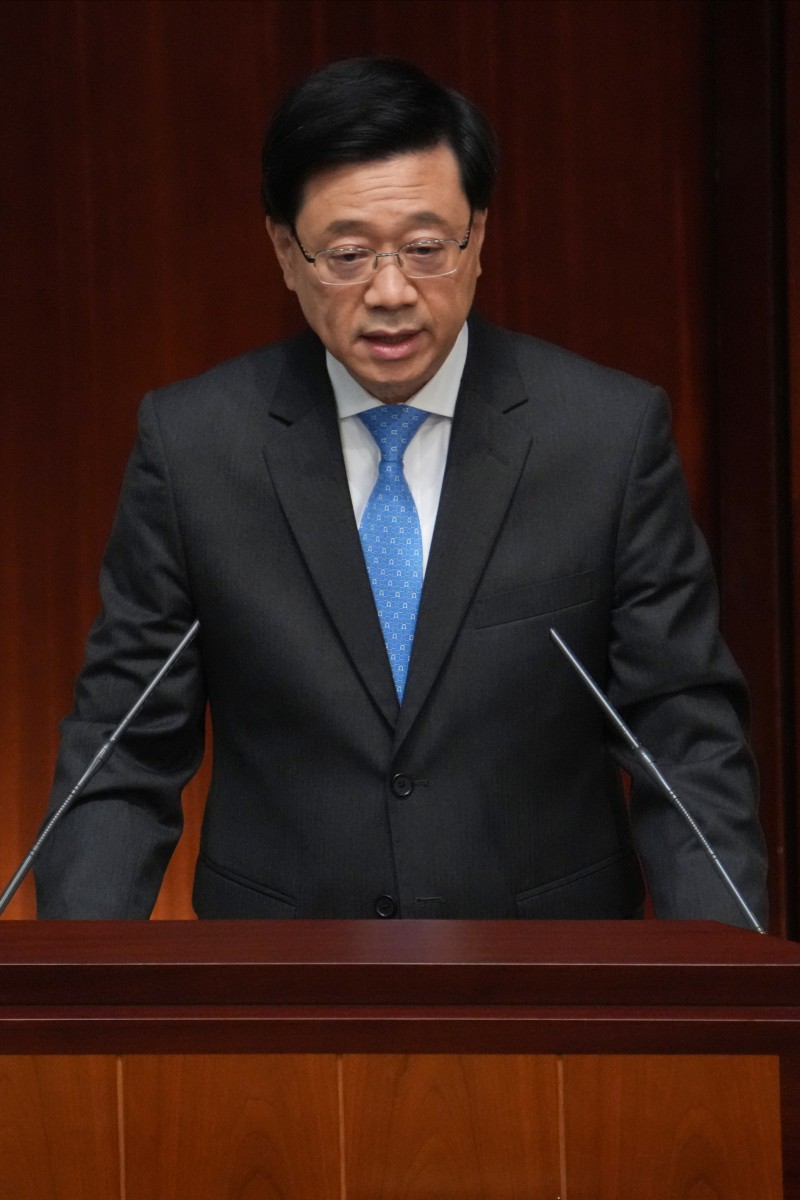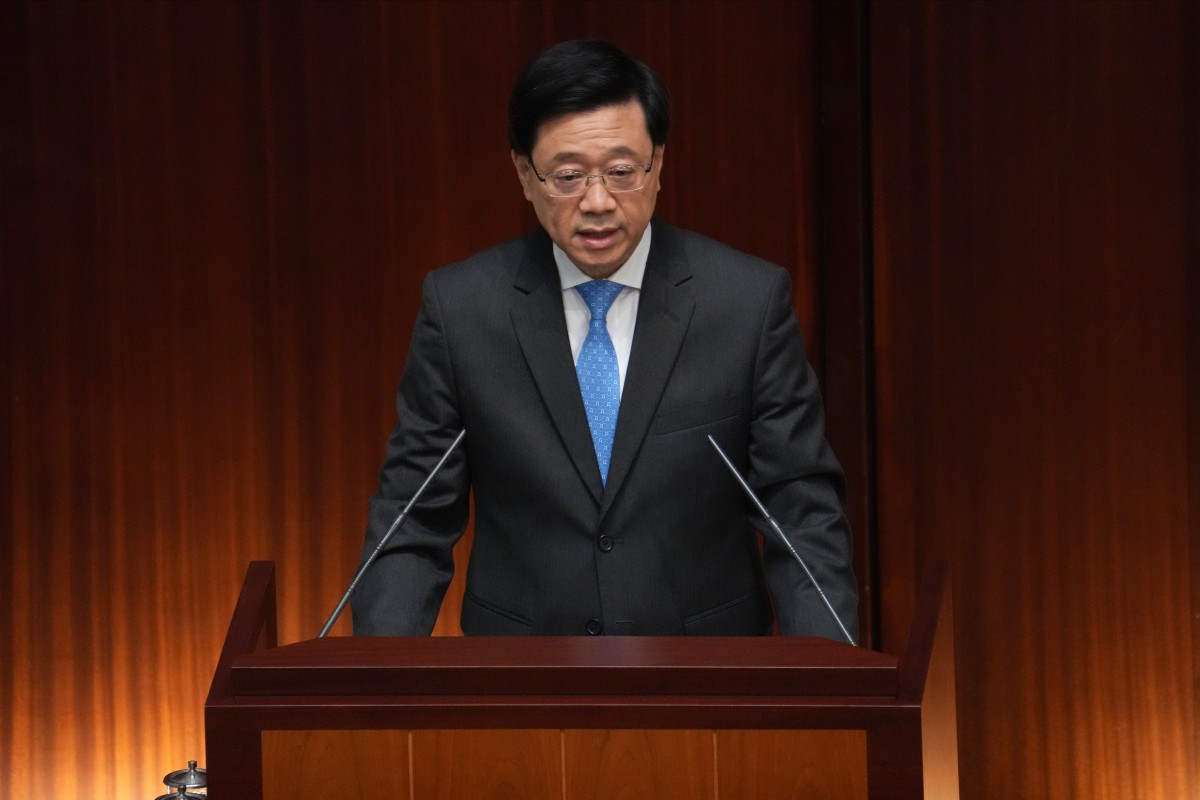
- The new chief executive announced plans to incorporate more innovation and technology learning in his speech on Wednesday
- Students say they appreciate the focus on science and engineering subjects, saying it will prepare them for their future careers
 Chief Executive John Lee Ka-chiu announced a new government plan to promote STEAM education in schools in his policy address on Wednesday. Photo: Sam Tsang
Chief Executive John Lee Ka-chiu announced a new government plan to promote STEAM education in schools in his policy address on Wednesday. Photo: Sam TsangHong Kong students welcome enriched STEAM education at school after the city’s leader John Lee Ka-chiu announced plans to incorporate more innovation and technology learning elements into the curriculum in his policy address on Wednesday.
In his maiden policy address, the chief executive unveiled key strategies to strengthen the city’s education system, such as promoting STEAM (science, technology, engineering, the arts, and mathematics) education at schools and supporting postsecondary education.
“We will step up the promotion of STEAM education for all, for fun and for diversity in primary and secondary schools, building a solid foundation for students in support of our direction of promoting IT [innovation and technology] development in Hong Kong,” he said.
Hong Kong leader announces new visa scheme to ‘lure global talent’ amid brain drain
By the 2024/25 academic year, Lee aims for at least 75 per cent of public schools to implement enriched coding education at the upper primary level and introduce additional IT elements, such as artificial intelligence, in the junior secondary curriculum.
All public primary and secondary schools must designate a STEAM education plan that goes beyond the classroom this school year and organise “quality STEAM activities” every year from next year.
The government first introduced STEM education in its 2015 policy address. However, it is not yet an independent subject in primary and secondary schools.
Valerie Chiu, a St Mary’s Canossian College student, is glad to have more STEAM learning opportunities at school.
“STEAM is an interesting and fascinating subject … It would be marvellous if my school had courses for us to delve deeper into coding and AI,” said the 12-year-old.
Clarisse Poon, a St Paul’s Co-educational College student, shared the sentiment.
Has Singapore become more competitive than Hong Kong?
“Incorporating elements related to STEAM [into the curriculum] will provide more opportunities to be exposed to other new aspects of the subject, especially the arts, which I have less interest in,” said the 13-year-old, adding that she has a particular interest in engineering.
“With the growing technological developments, more jobs are emerging in this industry, and I aspire for a career in engineering and technology.”
Chinny Kwok, a student at West Island School, agrees that promoting STEAM education at school could foster the city’s development.
How the Covid-19 pandemic and Hong Kong’s labour policies have led to growing income inequality
“I would love to learn more about AI, and having young people become educated in [STEAM] could promote Hong Kong’s technological growth,” the 15-year-old noted.
Valerie Shek, 12, from Independent Schools Foundation, is also excited about the government’s dedication to promoting STEAM.
“Technology and automation are constantly evolving, and we [students] must be versed in the versatility of technology and solving problems with a science and engineering mindset so we can be empowered and future ready.”
